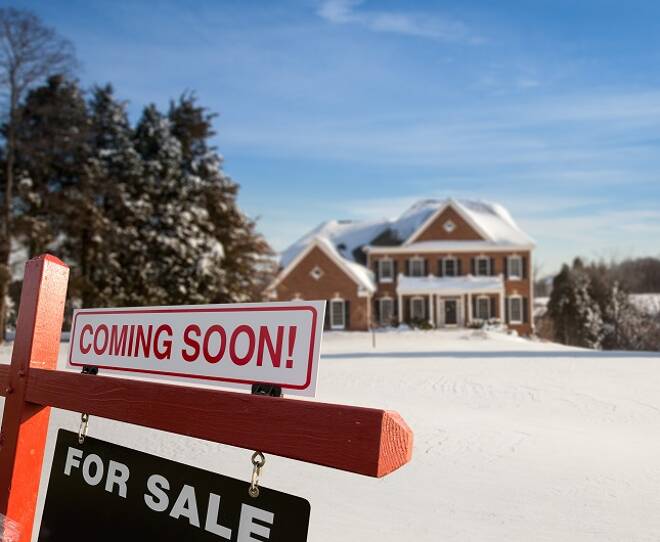Advertisement
Advertisement
U.S Mortgage Rates Return to 3% Levels as the U.S Economy Stutters
By:
U.S mortgage rates were on the rise last week. Holding at 3% may be a hard ask, however, as U.S - China tensions build and economic data disappoints.
Mortgage rates increased for the first time in 6 week weeks after having hit an all-time record low 2.98% in the week ending 16th July.
30-Year fixed rates increased by 3 basis points to 3.01%. In the previous week, 30-year fixed rates had fallen by 5 basis points to 2.98%.
Compared to this time last year, 30-year fixed rates were down by 74 basis points.
30-year fixed rates were also down by 193 basis points since November 2018’s most recent peak of 4.94%.
Economic Data from the Week
Economic data was on the quieter side through the 1st half of the week.
Key stats were limited to existing home sales figures for June that had a muted impact on the markets mid-week.
Later in the week, the weekly jobless claims and July prelim private sector PMIs disappointed the markets.
The weekly jobless claims increased by 1.416m in the week ending 17th July. In the week prior, initial jobless claims had risen by 1.307m.
On Friday, the services PMI rose from 47.9 to 49.6, coming up short of a forecasted 51.0. The manufacturing PMI rose from 49.8 to 51.3, which also fell short of a forecasted 51.5.
Risk appetite waned in response to the stats late in the week.
On the geopolitical risk front, tensions between the U.S and China were on the rise in the 2nd half of the week.
Trump’s plans to distract voters may have also backfired, however, as the passage of the next stimulus package hit choppy waters.
On the positive, however, supporting riskier assets in the earlier part of the week, was news of progress towards a COVID-19 vaccine.
Freddie Mac Rates
The weekly average rates for new mortgages as of 23rd July were quoted by Freddie Mac to be:
- 30-year fixed rates rose by 3 basis points to 3.01% in the week. Rates were down from 3.85% from a year ago. The average fee increased from 0.7 points to 0.8 points.
- 15-year fixed increased by 6 basis points to 2.54% in the week. Rates were down from 3.18% compared with a year ago. The average fee remained unchanged at 0.7 points.
- 5-year fixed rates rose by 3 basis points to 3.09% in the week. Rates were down by 38 points from last year’s 3.47%. The average fee remained unchanged at 0.3 points.
According to Freddie Mac,
- While housing demand continued to rebound, the month-long swoon in economic activity caused 10-year Treasury yields to fall.
- In the short-term, this means that demand will continue off the back of low mortgage rates.
- The most recent consumer spending data, however, has pointed to slow growth since mid-June.
- Of concern is that the pause in economic activity will cause unemployment to remain elevated. Such an eventuality would lead to longer-term labor market stress.
Mortgage Bankers’ Association Rates
For the week ending 17th July, rates were quoted to be:
- Average interest rates for 30-year fixed, backed by the FHA, decreased from 3.24% to 3.13%. Points remained unchanged at 0.29 (incl. origination fee) for 80% LTV loans.
- Average interest rates for 30-year fixed with conforming loan balances increased from 3.19% to 3.20%. Points rose from 0.33 to 0.35 (incl. origination fee) for 80% LTV loans.
- Average 30-year rates for jumbo loan balances decreased from 3.53% to 3.51%. Points remained unchanged at 0.29 (incl. origination fee) for 80% LTV loans.
Weekly figures released by the Mortgage Bankers Association showed that the Market Composite Index, which is a measure of mortgage loan application volume, increased by 4.1% in the week ending 17th July. In the week prior, the index had increased by 5.1%.
The Refinance Index increased by 5% and was 122% higher than the same week a year ago. In the week prior, the index had increased by 12%.
The refinance share of mortgage activity increased from 64.2 to 64.8% in the week ending 17th July. In the week prior, the share had risen from 60.1% to 64.2% of total applications.
According to the MBA:
- Mortgage rates increased last week despite mixed results from various rates tracked in MBA’s survey.
- The average 30-year fixed mortgage rate rose slightly to 3.20%, but some creditworthy borrowers are being offered rates even below 3%.
- Lower rates drove refinances up by 5%.
- There continues to be strong homebuyer demand this summer, as home shoppers have returned to the market in many states.
- Purchase activity increased again last week and was up 19% compared to last year. It was a 9th consecutive weekly year-on-year increase.
For the week ahead
It’s a particularly busy 1st half of the week.
Key stats in the 1st half of the week include June’s core durable goods orders and July consumer confidence figures.
Following last week’s disappointing weekly jobless claims, a fall in consumer confidence will test market risk sentiment.
On Wednesday, the focus will then shift to monetary policy, with the FED in action. While the markets are no expecting the FED to make a move, the FED will need to continue to provide assurances.
Away from the economic calendar, COVID-19, U.S fiscal stimulus updates, and U.S – China retaliatory moves will also influence.
New COVID-19 cases have been on the rise and economic indicators are pointing to a speed bump in the economic recovery.
Failure to deliver the next round of fiscal support would weigh heavily on risk appetite and pin back mortgage rates.
About the Author
Bob Masonauthor
With over 28 years of experience in the financial industry, Bob has worked with various global rating agencies and multinational banks. Currently he is covering currencies, commodities, alternative asset classes and global equities, focusing mostly on European and Asian markets.
Advertisement
